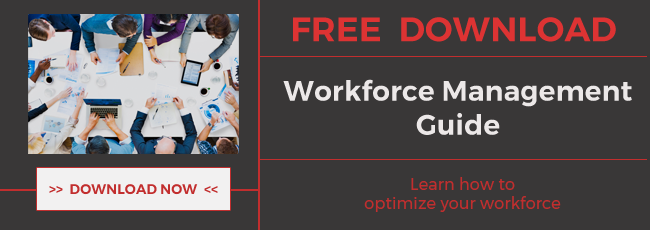Regardless of your company's organizational structure and hierarchy, you likely have managers and supervisors. And part of their role is to delegate tasks and ensure these tasks are accomplished correctly.

The challenge for many managers is knowing that the tasks they've delegated will be carried out as expected. Do their employees really understand everything they were delegated and are they able to carry it out satisfactorily? As managers, have they effectively communicated the specifics of the task and due date?
The typical response of many managers, unfortunately, is to either avoid possible confrontation with their direct reports and simply trust that all will go well. This is a form of managerial abdication of responsibility, however, and does not serve the manager, the employee nor the company.
The other response is one of the overbearing taskmaster. This is typically seen by managers who tend to look over the shoulders of employees, or ask vague questions such as, “How’s that project going?” when the employee is in midst of some other task. This approach is counterproductive and tends to dampen any sense of trust and open communication.
An Effective Delegation Follow Up Process
A productive and positive approach is one that positions a manager as caring, involved, cooperative and trusting. Implementing a positive and effective follow up process provides employees with the security of a defined system for regulating tasks.
There are a number of benefits for employees from an effective follow up process. They know that help is available when they need it, and they can communicate with a manager if there are unexpected changes or issues. In addition, they can be assured that they will do the work required and not find that it is incorrect or incomplete.
For managers, this approach in equally beneficial. It avoids frequent and often unproductive "status" or "update" meetings with employees. It eliminates the temptation for the manager to engage in random "spot checks" that only tend to interrupt and possibly intimidate an employee. In addition, it helps the manager to trust that the task delegated will be accomplished as directed.
A common problem for some managers is the tendency to take back a delegated task. According to a post at Project Management Institute this is known as "reverse delegation",
"There are two ways, forced and unforced, that this may take place. In the forced way, the push back comes directly from the direct report that received the delegated task, whereas in the unforced way, the manager voluntarily takes back the delegated task and work on it. Regardless of whether it is forced or unforced, when it occurs, it reflects an ineffective delegation from a weak leadership."
This behavior can cause the employee to feel untrustworthy and undervalued, and the manager feeling overburdened, resentful and angry.
Instead of verbal delegation and an unstructured follow up approach, an effective process communicates delegation in writing, schedules project report updates and a process for exception reports.
Three Steps for Follow Up Success
Follow the following guidelines to make sure your employees have the support and guidance they need to get the best results.
Regular Reporting Checkpoints for Review
Intermediate reporting checkpoints allows your employee to update the manager on the status of the delegated work. The manager can then review and provide either approval or any adjustments needed. The number and frequency of reporting checkpoints required is based on the type of work, the deadline given, and the ability of the employee carrying out the task. The reporting schedule should be set up when delegating the task and explained clearly.
Provide Clear Feedback and Instruction
Each reporting checkpoint provides an opportunity to review the progress with the employee. This is also an opportunity to coach the employee by noting what the employee did well and why or, if need be, what needed to be been done differently and why. Employees should be told clearly what is wanted and avoid verbal abuse. Communication should always come from a positive perspective as this will support both employees and managers for successful delegation.
Always Communicate in Writing
Whether you use paper forms or email, delegation and follow up needs to be in writing. Establish from the start with employees the best way to keep managers informed in writing about the progress of the work. This can take any number of forms although a progress checklist or weekly update reports work well. Depending on the nature of the work, a comprehensive action plan may be required.
This step will minimize or eliminate any tendencies towards either reverse delegation or unnecessary meetings. In addition, managers should frequently ask employees for feedback in order to improve and quantify the effectiveness of the delegation follow up process.
A Partner for Your HR Workforce Management
Managers have growing roles that include recruiting, hiring, managing and continually training employees. In addition, they are responsible for other functions such as employee development, payroll management, employee records compliance, and managing employee benefits.
Outsourcing is increasingly becoming a cost-effective and strategic option. Accuchex can help you in managing your HR needs, payroll processes, and staying on top of compliance demands.
Get your Free Download: Payroll Outsourcing Guide to help you make an informed decision or call Accuchex Payroll Management Services at 877-422-2824.





